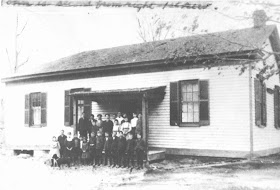Yesterday, we learned that Delegate Lacey Putney
is calling it quits after 52 years in the House of Delegates at the age of 84.
Lacey won his first election in 1961 at age 33 when John F. Kennedy was President. He was elected as a Democrat, but changed his party affiliation to Independent in 1968. He has caucused with the Republicans starting in the late 1990's and briefly served as Speaker.
Lacey is an a trial lawyer who hails from Bedford County - right across the Roanoke River from my grandfather's homeplace in Franklin County. Every time he speaks, I have flashbacks to my summers spent in Franklin County and my grandparents friends who I met through the years. People just don't talk like Lacey any more.
He has seen a lot in his 52 years in the House and I always found my conversations with him in the Member's lounge to be fascinating. When you have 52 years of experience, you have a lot of wisdom and insight to offer about Virginia, legislating, practicing law, or million other things.







